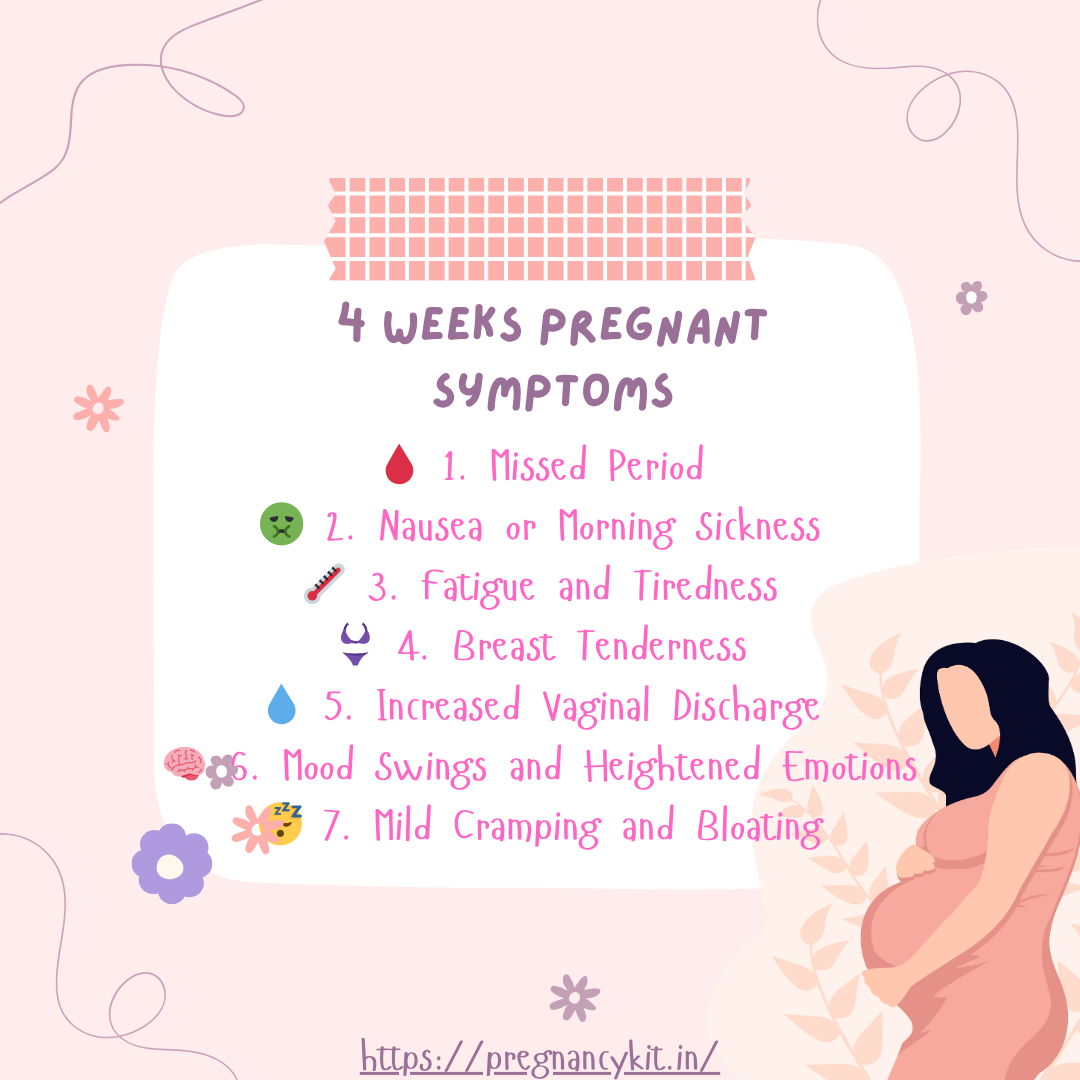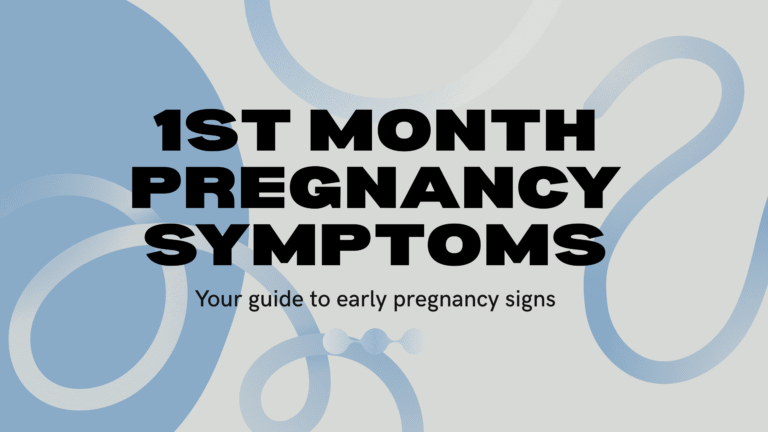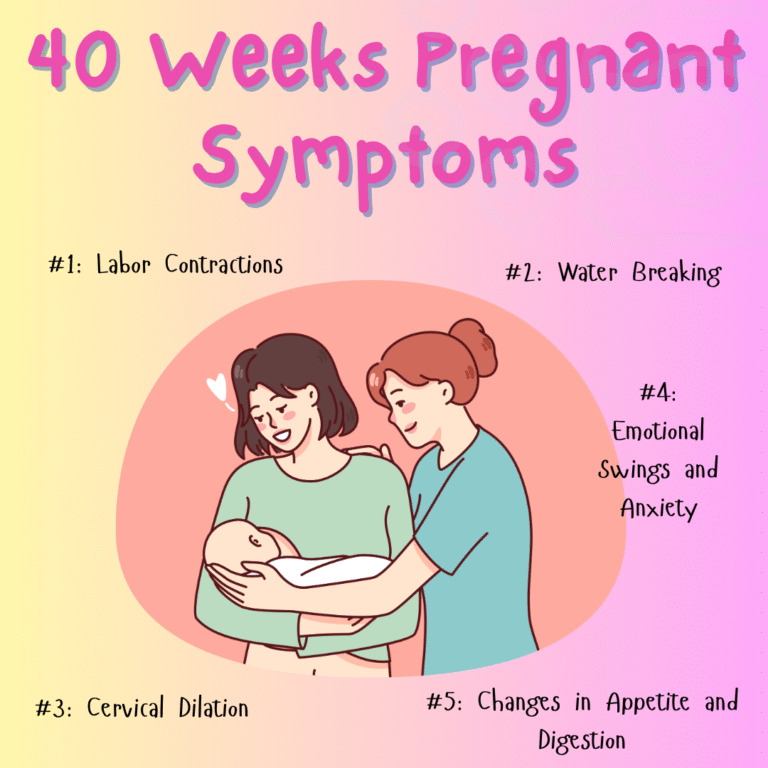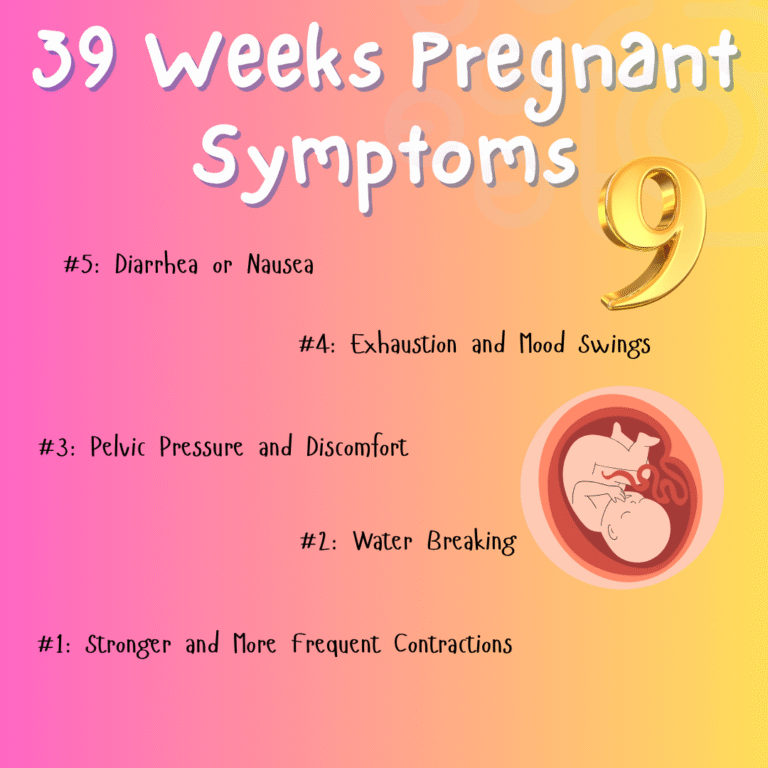4 Weeks Pregnant Symptoms: What You Might Be Feeling Right Now

4 weeks pregnant symptoms
4 weeks pregnant symptoms – Congratulations—by 4 weeks pregnant, many women begin to suspect something is different. At this point, implantation has likely occurred, and your body is starting to respond to the pregnancy hormone, hCG. If you’ve missed your period or are just a few days late, 4 weeks pregnant symptoms might already be showing up—even if you haven’t taken a test yet.
In this guide, you’ll learn what’s going on inside your body, what the most common 4 weeks pregnant symptoms are, and how you can take care of yourself in this crucial early stage.
🧬 What’s Happening in Your Body at 4 Weeks Pregnant?
At 4 weeks, the embryo has implanted securely in the lining of your uterus. Your body has started producing human chorionic gonadotropin (hCG)—the hormone detected in pregnancy tests.
Meanwhile, the placenta and amniotic sac are starting to form, and your baby is now about the size of a poppy seed. Though small, important changes are happening at lightning speed.
💡 Most Common 4 Weeks Pregnant Symptoms
Here are the 4 weeks pregnant symptoms many women experience around this time:
🩸 1. Missed Period
One of the most noticeable signs of early pregnancy is a missed period.
Why it happens:
After implantation, your body stops the menstrual cycle by releasing hCG, which tells the ovaries not to release another egg.
When to test:
If you’ve missed your period and are experiencing other symptoms, a home pregnancy test may already give a positive result.
🤢 2. Nausea or Morning Sickness
Some women begin to feel queasy or nauseous around 4 weeks pregnant, especially in the mornings.
Caused by:
The rapid increase in estrogen and hCG levels, which can upset your stomach.
Symptoms include:
- Nausea without vomiting
- Sensitivity to smell
- Loss of appetite
Tip:
Eat small, frequent meals and keep bland snacks nearby.
🌡️ 3. Fatigue and Tiredness
Feeling unusually tired? That’s one of the most common 4 weeks pregnant symptoms.
Why:
Your body is working hard to support the developing embryo. Progesterone levels are increasing, and your metabolism is rising.
How to cope:
- Prioritize sleep
- Eat iron-rich foods
- Stay hydrated
👙 4. Breast Tenderness
Your breasts might feel swollen, tingly, or sore—much like PMS symptoms, but more intense.
What causes it:
Hormones like estrogen and progesterone cause increased blood flow and fluid retention.
Signs:
- Darkened areolas
- Sensitive or painful nipples
- Slight growth or heaviness
💧 5. Increased Vaginal Discharge
Another subtle 4 weeks pregnant symptom is an increase in thin, white vaginal discharge.
Why it happens:
Increased estrogen and blood flow help protect the uterus from infection.
What to expect:
- Odorless or mild smell
- No itching or burning
- Creamy or clear texture
If it becomes discolored or has a foul odor, consult your doctor.
🧠 6. Mood Swings and Heightened Emotions
Feeling a bit more emotional than usual? You’re not alone. Mood changes are normal this early.
Why:
Hormonal fluctuations affect neurotransmitters in your brain.
Common feelings include:
- Anxiety or excitement
- Tearfulness
- Irritability
Pro Tip:
Talk to someone you trust and take time for self-care. Your feelings are valid and temporary.
😴 7. Mild Cramping and Bloating
Some mild uterine cramping and lower belly bloating are also common 4 weeks pregnant symptoms.
What’s happening:
Your uterus is expanding slightly, and hormonal shifts cause water retention.
When to worry:
If cramping is severe or accompanied by bleeding, see a doctor immediately.
👶 Baby’s Development at 4 Weeks Pregnant
Even though you can’t feel it, your baby is already growing rapidly. Here’s what’s developing now:
- The blastocyst is forming into three layers: ectoderm, mesoderm, and endoderm
- The amniotic sac and yolk sac are in place
- Basic structures for the brain, spine, heart, and organs are beginning to form
This stage is extremely important for long-term development.
💊 Self-Care and Tips for 4 Weeks Pregnant Moms
1. Start or Continue Prenatal Vitamins
Include:
- Folic acid (400–600 mcg)
- Iron
- Calcium
- Vitamin D
These support brain and spine development and help prevent birth defects.
2. Avoid Harmful Substances
- Quit smoking and alcohol
- Avoid over-the-counter medications unless prescribed
- Stay away from raw meat and unpasteurized dairy
3. Listen to Your Body
- Rest when you’re tired
- Don’t push yourself too hard
- Begin gentle movement or walking routines
🧪 Should You Take a Pregnancy Test at 4 Weeks?
Yes! Most home pregnancy tests can detect hCG levels by now—especially if you test with first morning urine.
If the test is negative and your period doesn’t arrive in a few days, try again.
👩⚕️ When to Call a Doctor
Even though it’s early, call your doctor if you experience:
- Severe pain
- Heavy bleeding
- Dizziness or fainting
- Any unusual discharge
Scheduling your first prenatal appointment around 6–8 weeks is also a good idea.
✨ Final Thoughts on 4 Weeks Pregnant Symptoms
At 4 weeks pregnant, your journey is just beginning. You may feel tired, emotional, or bloated—but these 4 weeks pregnant symptoms are often the first real signals of a growing life inside you.
Now is a great time to:
- Begin healthy habits
- Learn more about your body
- Embrace the incredible journey ahead
The symptoms may be subtle, but what’s happening inside is nothing short of miraculous. 🌱
Internal Links for Continued Learning
About The Author
JYO JOURNEY
PregnancyKit – to provide real, honest, and easy-to-understand information for women who might be wondering, “Am I pregnant?” or “What should I expect now?” Every guide I write is based on what we wished we had known during our own journey.
Through PregnancyKit, I want to help women feel supported, informed, and confident from the very first symptom. Because I believe every woman deserves clarity, care, and a little less stress during one of the most important journeys of her life.



15 thoughts on “4 Weeks Pregnant Symptoms: What You Might Be Feeling Right Now”